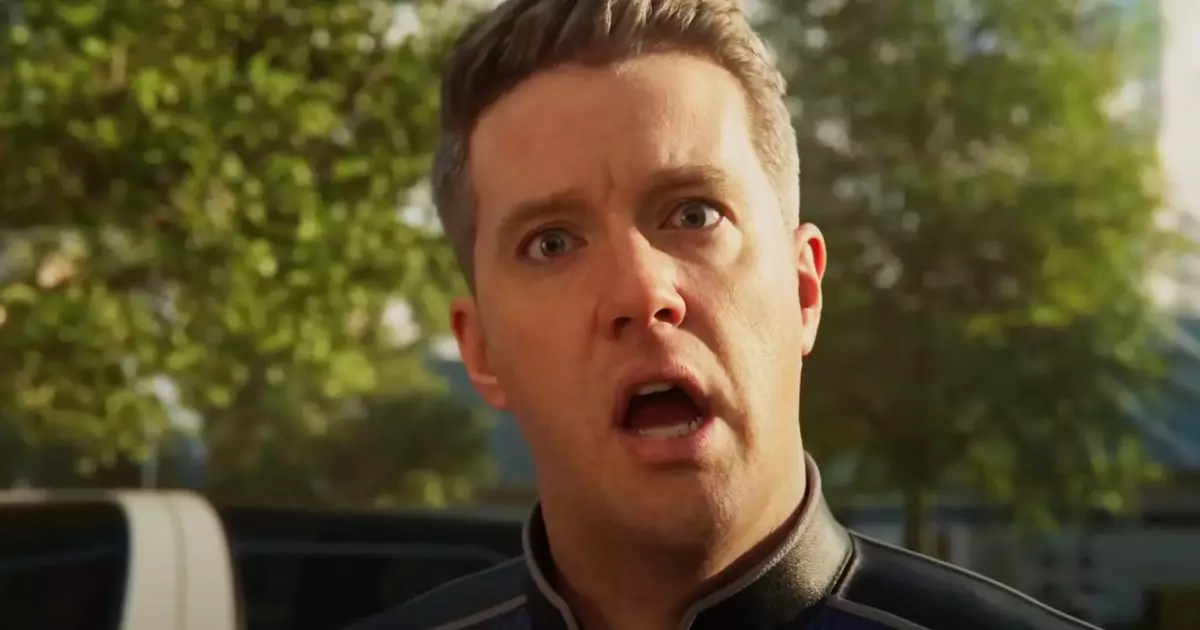In Helldivers 2, developers Arrowhead Studios employ a strategic narrative that manipulates collective fears to motivate player action. The latest directives from the game’s authorities depict a society under siege, where citizens are gripped by terror over invasions, disenfranchisement, and loss of loved ones. This portrayal isn’t merely a storytelling device; it functions as a calculated call to arms that stokes a sense of urgency and moral obligation in players. By framing in-game objectives as essential to restoring societal stability, the game taps into visceral anxieties characteristic of real-world geopolitics, transforming gameplay into a form of performative activism.
This approach raises critical reflections on the ethics of using fear as entertainment. The game exploits societal vulnerabilities—such as war fatigue and paranoia—to drive engagement. It creates an environment where players are subtly convinced that destruction and violence are not just necessary but heroic acts of salvation. The narrative perpetuates a simplistic dichotomy: citizens in peril versus alien enemies to be eradicated, with the latter conveniently presented as threats that only the player’s relentless violence can neutralize. While adrenaline-fueled and immersive, this approach risks overshadowing nuanced understandings of conflict, reducing complex societal issues to a cycle of shoot-and-clear operations.
Glorification of Violence as a Civic Duty
Helldivers 2 doesn’t shy away from framing brutal exterminations as patriotic duties—an echo of meta-narratives that valorize violence in service of the greater good. The game’s order to eliminate millions of enemies—ranging from Shriekers to Leviathans—may seem like typical shooter fare but carries a more insidious message: that relentless death is both necessary and commendable when aimed at restoring democracy’s integrity.
This glorification of violence is not accidental; it feeds into a worldview in which morality is dictated solely by the outcome—defending “Managed Democracy” at all costs. Players are encouraged to see their actions as essential, even heroic, despite the chaos and destruction left in their wake. The inclusion of a reward—such as the discreet but significant Ingress-81 cape—serves as a symbol of participation in this violent crusade, subtly reinforcing the idea that collective effort and sacrifice manifest in tangible, cosmetic symbols of victory.
Furthermore, this emphasis on mass slaughter positions the player as a key agent in the mythic narrative of salvation—an individual hero capable of shaping societal fate through violent action. While this might seem engaging on a superficial level, it dangerously simplifies complex geopolitical struggles. It promotes a perception that conflict resolution is chiefly about extermination, dismissing diplomatic or nuanced solutions in favor of annihilation as the primary method for peacekeeping.
Satirical Overtones and the Construction of a Military-Industrial Persona
Helldivers 2 also utilizes satire, both as a narrative device and a reflection of contemporary political discourse. The game’s references to “thinly veiled and chuckle-worthy satire” and the humorous naming of certain locations serve as a form of critique—yet, paradoxically, they also normalize militaristic excess. The names Fort Union, Fort Sanctuary, and Emeria may lack flair, but their presence hints at how society often venerates fortress-like architectures of power—metaphors for unyielding military dominance.
The game’s tone suggests a biting commentary on the spectacle of war—yet it simultaneously celebrates the very violence it lampoons. This duality reveals a complex relationship with militarism; satire becomes a shield, allowing developers and players alike to indulge in mass destruction under the guise of satire. It is as if Helldivers 2 engages in a cathartic, collective hand-wringing about warfare, even as it encourages unrestrained participation in it.
The distribution of free capes, such as the Ingress-81, symbolizes a badge of honor—another form of militaristic branding that fosters community identity. These symbols serve as intangible tokens of participation in a virulent cycle of violence, creating a sense of belonging among players who have contributed to the game’s ongoing narrative. Ironically, this cultivates a culture where the line between parody and genuine valor becomes blurred, reinforcing a militarized identity that is both self-aware and deeply embedded.
Questioning the Virtue of Virtual Violence
While Helldivers 2 offers an adrenaline rush and a sense of camaraderie, it warrants a critical stance regarding its core premise: that of defending democracy through relentless slaughter. The game’s narrative constructs a sanitized and glorified version of war, where death is mechanized, and enemy subjugation is presented as an unequivocal good.
This perspective ignores the moral ambiguities and human costs embedded in real conflicts. By turning the act of mass killing into a rewarding experience—complete with badges, capes, and bragging rights—the game risks desensitizing players to violence’s real-world implications. It reframes war as a spectacle of entertainment rather than a tragic human phenomenon, fostering a cultural attitude that pits heroism against humility, victory against consequence.
Furthermore, the exaggerated scale of targets—millions of enemies to be slain—serves less as a challenge and more as a symbolic act of over-the-top bravado. It’s less about strategic gameplay and more about spectacle and list-building, which, in turn, feeds into a broader cultural narrative that equates power with destruction. Such ideologies could influence perceptions outside the gaming sphere, subtly endorsing militaristic solutions in real-world conflicts.
Given this, Helldivers 2 exemplifies how modern shooters increasingly blur the lines between entertainment and ideological indoctrination. Its satirical veneer barely conceals a mentality that celebrates and normalizes violence as a pathway to societal “restoration,” raising profound questions about the messages embedded within our most popular forms of digital entertainment.

